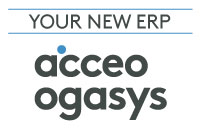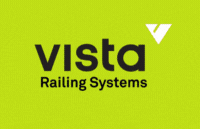With a federal election coming up on April 28, Canadian employers face challenges in balancing employees’ democratic rights with workplace safety.
Charlie Herrera Vacaflor, senior employment law consultant at Peninsula Canada, says, “Political transitions or significant events like a federal snap election create unique workplace dynamics where personal political opinions and professional boundaries intersect. Canadian employers must review their obligations on election day and reinforce workplace harmony while respecting employee’s diverse political viewpoints.
Under the Canada Elections Act, all employees who are eligible to vote must receive three consecutive paid hours during polling hours (9:00 am to 9:30 pm local time) to cast their ballot. Employers who fail to comply face fines up to $2,000, imprisonment for up to three months, or both.
If an employee works from 10:00 am to 7:00 pm, their work schedule overlaps with voting hours but does not inherently provide three consecutive hours within the voting window. Therefore, the employer is legally required to grant paid time off. This could mean letting the employee arrive 1.5 hours late or leave 1.5 hours early to create a continuous three-hour window within polling hours.
Where an employer is obligated to provide voting time off, the Canada Elections Act explicitly prohibits any deduction from an employee’s pay, and employees cannot be penalised in any way for exercising their right to vote. Employees must receive their regular day’s pay. For hourly or piece-work employees, this means they must be paid for the hours they would have normally worked, even if they are at the polls.
The Act further prohibits employers from using intimidation, undue influence, or any other means to interfere with an employee’s ability to exercise their three consecutive hours for voting. Employers must be transparent and communicate voting rights clearly.
While facilitating voting access is a straightforward legal duty, managing political discourse can present different challenges. Political belief is not explicitly a protected ground under most Canadian Human Rights legislation (except for British Columbia and Manitoba), but employers must ensure that political discussions in the workplace do not create a discriminatory or hostile work environment.
Allowing bigotry or hate speech, even under the guise of political commentary, can disrupt the workplace and form the basis for harassment or discrimination complaints, potentially leading to constructive dismissal claims under unsafe workspace environment grounds.
Employers should ensure they have clear and robust policies that outline acceptable behaviours and establish clear boundaries for respectful political discussions. Provide specific examples of prohibited conduct, such as harassment, discriminatory comments, or hate speech, and clearly state the company’s commitment to balancing freedom of expression with its obligation to maintain a safe, respectful, and productive work environment. Establish clear and accessible procedures for addressing workplace conflicts arising from political discussions, ensuring prompt and impartial resolution.
We’ve all seen examples where social media posts have led to issues in the workplace, and seemingly casual political comments can easily turn to a liability or disciplinary issue for employers. So, it’s important to remind employees of your expectations regarding use of social media.
Clearly distinguish expectations between employees’ on-duty and off-duty social media use, especially when it comes to representation of company views. Establish explicit guidelines for sharing political content on company platforms, internal communication channels, and outline specific examples of prohibited online behaviour.
It’s important, however, to ensure a careful balance between reasonable policies and employees’ rights to privacy and freedom of expression.
The overarching goal is not to eliminate political discussion entirely, but to ensure such discussions are conducted respectfully, without interfering with productivity or creating a hostile or discriminatory environment for any employee.
A global leader in HR and health & safety consulting, Peninsula has been supporting small and medium businesses for 40 years. We are trusted by over 140,000 SMBs globally. In Canada, we helped over 6,500 SMBs with tailored HR documentation, 24/7 employer advice, and provide employment management software. We pride ourselves on delivering a service that mitigates risk, adds value, and allows businesses to focus their time on what matters most.




































